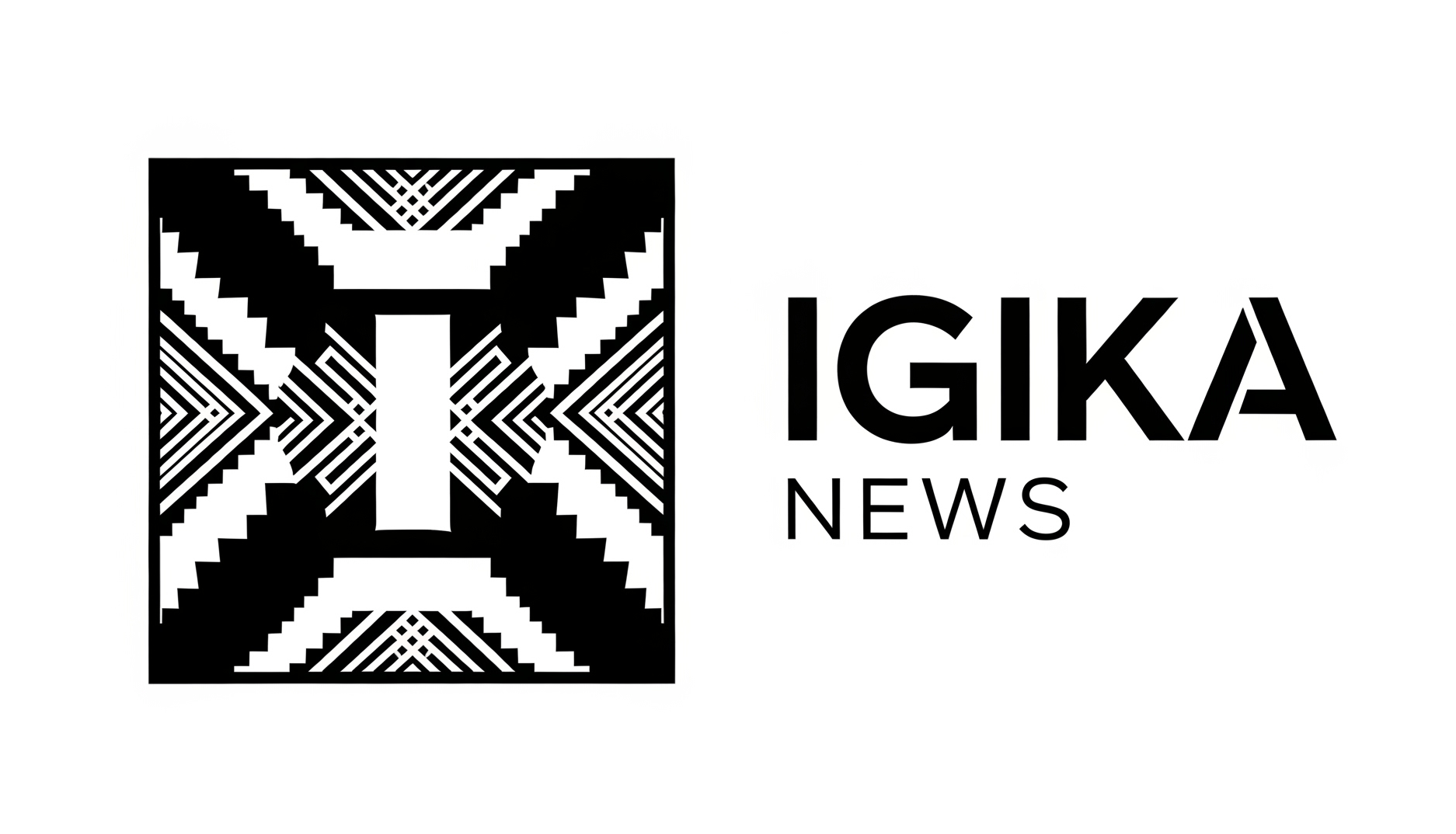Slug: why-you-should-invest-in-real-estate-in-kigali
Introduction: The Lasting Appeal of Real Estate—It’s More Than Just Bricks and Mortar
Hello, smart readers and people who want to invest! As someone who has been through the exciting, sometimes difficult, but always rewarding world of investments, I can say with confidence that real estate is one of the few assets that will always be appealing and can help you build wealth. People in Kigali’s busy streets and the quiet suburbs of big cities all over the world ask the same question: Why would someone invest in real estate?
It’s a question that has been asked for generations, a strategy used by the world’s most successful people, and a way to become financially independent that is still very easy to follow, even for those who are just starting out. But it’s not just a physical asset; it’s a way to make money without doing anything, build equity, use capital, and keep your wealth safe from the unpredictable effects of inflation.
This long guide will take a close look at the many reasons why someone might want to invest in real estate, with a focus on the unique opportunities available in Kigali’s fast-changing market. We’ll break it down for you, showing you the main benefits, different ways to invest, possible risks, and useful, actionable advice that you can use right away, whether you’re an experienced investor or thinking about your first property deal in Rwanda. Get ready to make the world of real estate less mysterious and open up its amazing possibilities.
Phase 1: The Cornerstone Reasons—Revealing the Main Benefits of Investing in Real Estate
Let’s start by looking at the main reasons why many people and organizations around the world choose to invest in real estate.
1. Thank you for the power of long-term value growth.
One of the best reasons to invest in real estate is that it tends to go up in value over time. This means that the house you buy today will probably be worth more in the future.
Historical Performance: In the past, real estate values have consistently gone up, outpacing inflation in many markets. There may be short-term ups and downs, but the long-term trend is usually positive. This rise in value is mostly due to Kigali’s rapid growth in cities and businesses.
Source: If you want to find a specific source for Kigali’s historical appreciation, you could look at reports from local real estate companies like Century21 Rwanda or economic reports from the National Bank of Rwanda (BNR). There isn’t always a direct link to a full historical appreciation report for Kigali, but reports on economic growth and foreign direct investment often mention it.
Try searching for “Kigali real estate appreciation trends” or “Rwanda economic growth property market” on Google Scholar or BNR.
Real estate is a great way to protect yourself from inflation. Property values and rental income go up as the cost of living goes up, which keeps your buying power the same. This is especially true in economies that are growing.
Demand and Scarcity: There isn’t enough land to go around. As more people move to cities and populations grow (Kigali is a city that is seeing a lot of new residents), the need for homes and business spaces rises, which raises property values. It is even harder to find land to build on in Kigali because of its hills.
Tip: If you’re looking at a property in Kigali to see if it will appreciate, look into local development plans, infrastructure projects (like new roads, utilities, and commercial centers), and population growth forecasts for certain sectors. Masaka, Nyamirambo, and the growing outskirts of Kigali are all areas where new infrastructure and master planning are going in. These areas might have a lot of potential for appreciation. Also, think about how projects that are still going on, like the Kigali Innovation City, will affect things.
2. Cash Flow: Making steady money without working
Another strong reason to invest in real estate is the chance to make steady money, especially with rental properties.
Rental Income: RENTAL INCOME: You can make a steady stream of money by buying properties that make money (residential or commercial) and renting them out. Your cash flow is the money you have left over after paying for things like your mortgage, taxes, insurance, and maintenance. Kigali’s strong expatriate and growing middle-class population make the rental market strong.
Financial Stability: Having a positive cash flow gives you financial stability because it helps you pay for property, save money, or even make more investments. It can help you become financially independent by making you less dependent on your main source of income.
House hacking is a common way for beginners to get started. It means buying a multi-unit property, like a duplex or a larger house with extra rooms that you can rent out, and living in one unit while renting out the others. You can live for free or at a lower cost because the rent you get helps pay off your mortgage. This can work very well in parts of Kigali that are popular with college students or young professionals.
Tip: Do thorough background checks, employment checks, and rental history checks on potential tenants. A clear rental agreement is very important in Rwanda. A dependable tenant is very important for steady cash flow. (Interlink: [Link to internal blog post on “Tenant Screening Best Practices in Rwanda”])
3. Leverage: Getting More Out of Your Investments
Real estate is the only investment that lets you use leverage, which means borrowing money to boost your potential return on investment. This is one of the main reasons why people buy real estate.
Mortgage Power: You can buy a big asset with just a small amount of its total value as a down payment. The rest comes from local banks in Rwanda, such as Bank of Kigali, I&M Bank, and Equity Bank. Your return is based on the total value of the property, not just your initial down payment, as the property goes up in value.
For example, if you buy a property for RWF 100,000,000 and put down RWF 20,000,000, and the property goes up in value by 5% (RWF 5,000,000) in a year, your RWF 20,000,000 investment made RWF 5,000,000 in appreciation, which is a 25% return, not counting cash flow and costs. Over time, this magnification effect is very strong.
Important: Leverage can make gains bigger, but it can also make losses bigger. Rwandan banks and credit unions must make sure that people understand the terms of their loans, borrow responsibly, and plan their finances carefully. Interest rates and the ease of getting a loan can change.
Tip: Always have an emergency fund to cover unexpected costs, especially if you’re borrowing a lot of money. This should be at least six to twelve months’ worth of mortgage payments and property expenses. Don’t take on too much debt, and make sure your debt-to-income ratio stays healthy.
4. Tax Benefits: Lowering Your Taxable Income
Investing in real estate has a number of big tax benefits that can lower your taxable income by a lot. This is a big reason why people would want to buy real estate. Tax laws are different in each country, so readers should talk to a local Rwandan tax advisor, especially the Rwanda Revenue Authority (RRA).
Depreciation: Even if the property is actually going up in value, you can often deduct a part of its value (not including the land) each year as a depreciation expense. This deduction that doesn’t involve cash lowers your taxable income. Rwandan tax law spells out the details of how depreciation works.
Tax-Deductible Expenses: In Rwanda, many costs that come with owning and managing a rental property can be written off on your taxes. These include:
- Interest on a mortgage
- Taxes on property (Local Government taxes on property)
- Costs of insurance
- Costs for repairs and upkeep
- Fees for managing property
- Ads for tenants
Check out the Rwanda Revenue Authority (RRA) rules for specific costs that can be deducted.
Capital Gains: When you sell a property and make money, you usually have to pay capital gains tax on the profit. In Rwanda, though, the rates and exemptions can change depending on how long you own the property and what kind it is. It’s important to know these small differences when making exit plans.
Tip: Keep very detailed records of all the money you make and spend on your investment properties. Talk to a qualified tax advisor in Rwanda to learn about the country’s tax laws and how to get the most out of your deductions while still following RRA rules.
5. Tangible Asset & Control: Power to Make Decisions and Keep Things Stable
You can see, touch, and often control real estate, which is different from stocks or bonds. This tangibility is a comforting reason to put money into real estate.
Real estate is a physical asset that gives you a sense of security. It’s not just a number on a screen; it’s a building and a piece of land. This can be especially appealing in developing markets where people think that having real assets makes things more stable.
Control Over Investment: Owning property in Kigali gives you a lot of power over your investment. You can choose to fix up, improve, or manage the property in a way that makes it more valuable and profitable, based on what people in the area want. You can’t directly control how a company runs when you own stocks.
Tip: Check on your property often, keep up with repairs, and think about renovations that will add value and meet the needs of the Kigali market, like modern finishes, reliable utilities, and security features. Even small cosmetic changes can make a big difference in how appealing a property is and how much rent it can bring in, especially if it is aimed at expats or the growing middle class.
Phase 2: Figuring Out What Kind of Real Estate Investment You Want to Make in Rwanda
There is a lot to know about real estate. If you’re thinking about why someone would invest in real estate and how to do it well in Rwanda, it’s important to know about the different kinds of investments that are out there.
1. Residential real estate is the most common way to get into Kigali.
Single-Family Homes: Buying one house and renting it out to a family. You can find these a lot in neighborhoods like Kimironko, Gisozi, or Rebero.
Pros: Families and expats want it a lot, it’s not too hard to understand, and it’s good for long-term growth in neighborhoods that are getting bigger.
Cons: There’s a risk of having only one tenant, and it can be hard to manage, especially if you don’t live nearby.
Duplexes, triplexes, and apartments are examples of multi-family homes. These are buildings with more than one unit, and they are often found in areas with a lot of people or near colleges.
Pros: More than one source of income (which lowers risk), often more cash flow, and the possibility of economies of scale in management.
Disadvantages: higher cost, more difficult to manage, and knowledge of multi-unit rules is needed.
Condos and apartments are individual units in a larger building. They are common in upscale areas of Kigali like Kiyovu, Nyarutarama, and Kacyiru. Fees for homeowners’ associations (HOAs) are often included.
Pros: The HOA or management company takes care of the outside, the entry price is usually lower than that of a single-family home, and the homes often come with extras like security and common areas.
Cons: HOA fees can cut into profits, you have less control over how the outside looks or big renovations, and there is a chance of problems with management.
Renting out homes for a short time, like days or weeks, is called short-term rentals (Airbnb or holiday homes). Kigali has a lot of tourists and business people, so these areas are popular. Rwanda’s tourism and MICE (Meetings, Incentives, Conferences, Exhibitions) sectors are growing.
Pros: The potential for high income, flexibility, and taking advantage of Rwanda’s tourism boom.
Disadvantages include a significant amount of management work, such as cleaning, handling guest turnover, and marketing; the need for excellent customer service; and the possibility of having to comply with local tourism regulations and obtain a license.
Source: Rwanda Development Board (RDB) To learn about the laws that govern short-term rentals, you can look up “tourism regulations” or “hospitality sector guidelines” on the RDB’s website (https://rdb.rw/).
Practical Tip: If you want to invest in residential property in Kigali, do a lot of research on the average rental rates, vacancy rates, and rental demand by sector. Websites like Jumia House Rwanda, local real estate agencies like Kigali Real Estate or Century21 Rwanda, and property management companies can give you useful information about the market. Think about properties that are close to schools, businesses, or other places that are useful.
2. Commercial Real Estate: More Risk, but More Potential Rewards
Office Buildings: Renting out space in an office building to businesses. There is more demand in Kigali’s CBD and new business parks.
Retail Properties: Strip malls, shopping centers, and single-storefront stores. Retail spaces can be profitable because the middle class is growing and people are spending more money.
Industrial Properties: warehouses, factories, and distribution centers. Important for the growth of Kigali’s logistics and industry.
Mixed-use developments are projects that have both residential and commercial spaces, and sometimes even recreational spaces. More and more common in Kigali’s urban planning, they provide a variety of income streams.
Pros: Longer leases (more stable income), often higher income potential, professional tenants, and the chance for bigger returns.
Cons: The price is higher, the contracts and legal frameworks are more complicated, and vacancy rates can change more quickly in some commercial sectors when the market changes.
Tip: If you want to buy commercial real estate in Kigali, you may need to do more market research, learn about business growth trends, and have a lot of money. Only think about this after you have worked in residential or through other means, and always with the help of local commercial real estate experts.
3. Raw Land: The Best Long-Term Investment in a City That Is Growing
Unimproved Land: Buying plots of land that haven’t been developed yet, especially on the outskirts of Kigali or in planned growth corridors.
Pros: Low maintenance costs, big potential for appreciation if developed in the right way (for example, in areas set aside for future residential or commercial growth), and the ability to use it in the future.
Cons: No immediate income, very hard to sell, and the risk depends a lot on future development plans, changes in zoning, and the rollout of infrastructure. Needs careful research on land titles and zoning.
Tip: Only buy raw land if you have a very long-term plan and have done a lot of research on the City of Kigali Master Plan (CoK) or the Rwanda Housing Authority (RHA) plans for future zoning and infrastructure. To avoid problems, check with local surveyors and lawyers to make sure you have the right land titles.
Phase 3: Investment Strategies—How to Make Your Money Work in Rwanda
It’s only half the battle to know why someone would invest in real estate. The “how” depends on how well the strategy works in the Rwandan market.
1. Buy and Hold (Rental Property Investment): The Old and Reliable Way
Idea: Buy a property and keep it for a long time so you can rent it out and make money as it goes up in value. This is a well-known and fairly stable plan in Kigali.
Ideal for people who want to build wealth, earn passive income, and long-term investors who want steady returns.
Tip: Look for properties in areas with high rental demand, like near universities like ULK, business districts, or neighborhoods with a lot of expats. Also, make sure the job market is stable and there is good access to amenities. Whether you manage your own property or hire a local company to do it for you, this strategy needs good property management.
2. Fix and Flip: A risky but rewarding business for active investors
The idea is to buy a property that is worth less than it is worth (usually an older home that needs a lot of work), fix it up to raise its value, and then sell it quickly for a profit.
Good for investors who are active, know how to build things, have access to money, know a lot of trustworthy local contractors, and are good at keeping up with Kigali’s changing design tastes and market trends.
Tip: It’s important to get an accurate estimate of how much renovations will cost because unexpected costs can quickly eat into profits. Know how much building costs and what materials are available in your area. Don’t think that the time and effort needed for project management is small. People who aren’t in Kigali will find this strategy harder.
Call Porter has a blog post called “12 Proven Real Estate Investing Strategies To Try in 2025” that you can find by searching for “fix and flip.”
3. Wholesaling: Using networks to make money without owning property
The idea is to find properties that are in trouble (often from sellers who want to sell quickly), put them under contract with a purchase agreement, and then “assign” that contract to another investor for a fee, without ever owning the property yourself.
Best for: People who are good at networking, know a lot about the local market, are good at negotiating, and don’t have a lot of money to start with. To do this, you need to get to know cash buyers in Kigali.
Tip: To do this, you need to be able to generate a lot of leads (find sellers who are motivated) and have a large network of cash buyers who are ready to buy. Different places have different laws about contracts. In Rwanda, you should learn about the local laws and work with a local real estate lawyer to make sure all of your assignments are legal and binding.
4. Indirect and liquid exposure through Real Estate Investment Trusts (REITs)
Idea: Companies that own or finance real estate that makes money in different areas, such as commercial, residential, and healthcare. You buy shares in the REIT, which is like buying stock on a stock exchange.
Pros: You can easily buy and sell shares on the Rwanda Stock Exchange if there are local REITs that are listed. You own a piece of many properties, so you don’t have to manage them yourself. You also have to pay out a high percentage of taxable income as dividends.
Cons: You can’t directly control the properties, the stock market can be volatile (even if the underlying assets are real estate), and the value of the properties may not go up as much over time as if you owned them directly.
Local Context: As of June 2025, we don’t know of any liquid REITs that are only available on the Rwanda Stock Exchange (RSE). Investors may need to look at African or international REITs that are listed on other exchanges. Always look at the RSE for the most up-to-date listings.
Tip: Just like with any other stock, do your homework on REITs. Check out their assets, management team, and history of paying dividends. Be aware of currency risks and differences in regulations when you invest in other countries.
5. Real estate crowdfunding: getting together to work on bigger projects
Idea: Several investors put their money together on online platforms to buy bigger real estate projects (debt or equity). This could include anything from homes to businesses.
Pros: Lower entry barrier (you can invest smaller amounts, which makes it easier for more people to get into larger deals); access to larger, often commercial, deals that would be hard to get otherwise; and usually passive income.
Cons: Less control over the project itself, money is often locked up for years until the project is finished or sold, platform fees can cut into returns, and it’s important to do due diligence on the platform and its operators.
Fundrise is the source. Check out their platform (https://fundrise.com/) for examples of crowdfunding projects. Please note that many platforms only work in certain areas or with accredited investors. Platforms that only focus on Rwandan real estate may be new and not yet fully established globally accessible ones.
Tip for the real world: Do a lot of research on crowdfunding sites. Know their fees, how they check out deals, and how much money they’ve made in the past. If you can, spread your investments across different projects and platforms to lower your risk. Check to see if Rwandans can use the platform and if the assets it holds are legal in Rwanda.

6. The BRRRR Method (Buy, Rehab, Rent, Refinance, Repeat) speeds up the growth of your portfolio.
The idea is to buy a property that is worth less than it is worth (often with cash or hard money), fix it up to raise its value, rent it out to tenants, and then refinance it to get your original investment back (and maybe more) through a cash-out refinance. Then do the same thing with the money you made from the first deal.
Ideal for investors who want to quickly grow their rental portfolio with as little new capital as possible for each new deal. You need to know a lot about how much a property is worth, how much it will cost to fix it up, and what financing options are available in Kigali.
Call Porter has a blog post called “12 Proven Real Estate Investing Strategies To Try in 2025.” You can find it by searching for “BRRRR method” on their website.
This strategy requires good project management skills, access to trustworthy local contractors (which is important for keeping costs and schedules on track in Rwanda), and good refinancing terms from Rwandan banks. To make sure you can get enough money out during the refinance phase, it’s important to get an accurate ARV (after repair value) estimate.
Phase 4: Avoiding the Mistakes—Knowing the Risks of Investing in Real Estate
There is always a risk with an investment, and real estate is no different. To have a full understanding of why someone would invest in real estate, they need to know about its possible downsides.
1. Not enough cash:
Challenge: Real estate is not as easy to turn into cash as stocks or other liquid assets. Because of how real estate deals work, it can take months or even longer to sell a house in Kigali, especially in a slow market.
Mitigation: Keep enough cash on hand (an emergency fund of six to twelve months’ worth of living and property expenses) to cover unexpected costs. Don’t borrow too much money or depend on selling property to get cash right away.
Source: SEC.gov – “Risks of Investing” – Search SEC.gov (https://www.sec.gov/) for “risks of investing in real estate.” This is a general investor risk document that talks about illiquidity.
2. Changes in the market:
Challenge: Property values can go down in the short to medium term in a growing market like Kigali, even though they usually go up over time. This can happen because of economic downturns, too much supply in certain sub-markets, or changes in local policy. The world economy can also have effects that spread.
Mitigation: Put money into something for the long term (5–10 years or more) to ride out short-term changes. Don’t put all your money into one piece of real estate; instead, spread your money out over different types of properties and locations if you can. Look into the trends and forecasts for each of Kigali’s sectors in great detail.
3. High Initial Costs:
Down payments, closing costs (like transfer taxes, legal fees, and agent commissions), renovation costs, and initial repairs can all add up to a lot of money, making it hard for many people to get started.
Mitigation: Look into ways to lower your initial capital needs, such as house hacking, real estate crowdfunding, or teaming up with other trustworthy investors. Know all the costs involved in transferring land in Rwanda, from the fees to the legal registrations. (Interlink: [Link to internal blog post on “How to Start Investing with Little Money in Rwanda”])
4. Things That Property Management Needs:
Being a landlord is hard work because you have to find and screen tenants, deal with maintenance requests, collect rent, and handle possible disputes or evictions. This can be especially hard if you don’t live in the house.
Mitigation: Hire a good local property management company. They usually charge 8–12% of the gross rental income and a fee to find a tenant. Carefully screen tenants to cut down on problems. In the management agreement, make sure to spell out who does what and who is responsible for what.
5. Costs that come up out of the blue:
Repairs (like fixing the roof, HVAC, plumbing, or electrical problems), vacancies (when no one is paying rent), and unexpected problems (like natural disasters or major appliance failures) can all have a big effect on how profitable a property is.
Mitigation: Set up a strong emergency fund for each property, like 1–2% of the property’s value every year or 3–6 months of operating costs. Do thorough research and hire professionals to check things out before you buy. When figuring out how much money you could make, take into account a vacancy rate of 5% to 10%. Get enough property insurance from a local company like Britam, Old Mutual, or Sonarwa.
6. Changes in the law and rules:
Challenge: Laws about property ownership, renting, taxes, and zoning can change. These changes could make your investment less profitable or even illegal.
Mitigation: Keep up with the rules in your area. Work with a qualified real estate lawyer and tax advisor in Rwanda who can keep you up to date on any changes to the law. Make sure that all of your property documents (land titles, building permits, and tenancy agreements) are up to date.
The Rwanda Land Management and Use Authority (RLMUA) says that you can find the most up-to-date land laws and policies on their official website (https://www.land.gov.rw/).
Step 5: Getting Started—Helpful Advice for People Who Want to Invest in Real Estate in Rwanda
You know why someone would want to invest in real estate, but how do you really get started, especially in Kigali?
1. Learn all the time (in your own area and around the world):
Read books and blogs about real estate investing to learn about the general principles and those that apply to new markets.
Listen to Podcasts: You can get free, useful advice from experienced investors on many podcasts.
Tip: Keep learning even after your first deal. The market is always changing, so it’s important to keep learning about global trends and local policies if you want to be successful in the long term. Follow trustworthy Rwandan business news sites that write about real estate.
2. Put together your A-Team in Kigali:
Find a reliable real estate agent in Kigali who knows a lot about investment properties, understands your goals, and has a lot of connections. Find agents who work for well-known companies, such as Premier Properties, Kigali Real Estate, or Century21 Rwanda.
Loan Officer/Banker: Get to know local lenders like Bank of Kigali, I&M Bank, Equity Bank, and BPR Bank Rwanda so you can get better terms on mortgages or construction loans. Know what they need from real estate investors.
Real estate lawyer: important for checking contracts, doing due diligence on land titles, and making sure that Rwandan property laws are followed.
Tax Advisor/Accountant: The Rwanda Revenue Authority (RRA) says that this is necessary to get the most out of tax benefits and to know the rules in your area.
Good contractors and handymen: for fixing things and making them better. Ask for recommendations and check out their past work.
Property Manager (if you can’t be there or are busy): A trustworthy company to take care of daily tasks.
Advice: Ask other successful investors in Kigali for advice. To find the best fit for each role, interview several candidates and give priority to those with experience and knowledge of the area.
3. Start small and smart, if you need to:
House hacking is a great way to get into the market while lowering your own housing costs.
REITs and crowdfunding are good options for people who want to invest in real estate without having to put up a lot of money up front. This is especially true if you want to invest from outside of Kigali or if you don’t have a lot of money to invest in Kigali right away.
Partnering: Work together with trusted friends, family, or other investors who share your goals. Make sure there are clear legal agreements.
Tip: Your first deal doesn’t have to be a huge success. The goal is to start, learn important things, and build up speed. Even a small piece of land in a growing area can be a good long-term investment. (Interlink: [Link to internal blog post on “How to Invest with Limited Capital in Rwanda”])
- Set your investment goals and stick to them.
Location: Which neighborhoods or areas in Kigali are likely to see good growth? For example, Kacyiru’s commercial growth, Gisozi’s residential demand, and Gasabo district’s emerging areas.
Is the property residential (apartments, houses, multi-family), commercial (office, retail), or just land?
What kind of return (cash-on-cash or total ROI) do you want from your investment?
Risk Tolerance: How much risk are you willing to take on based on your money situation?
Tip: Write down what you want from your investments and stick to it. This helps you stay focused, keeps you from making emotional choices, and speeds up your property search.
5. Do a lot of research. Here are the details for Kigali:
Market Analysis: Know how supply and demand work in your area, what the average rental rates are for different types of properties and locations, and what similar properties have sold for in certain neighborhoods in Kigali.
Financial Analysis: Figure out the possible cash flow, cap rates (Net Operating Income / Property Value), and return on investment (ROI). Don’t forget about all the costs, like property taxes, management fees, and possible empty spaces.
Property Inspection: Hire a professional to look for any hidden problems with the structure or utilities. This is very important for older homes.
Have your lawyer look over all of your contracts, land titles (make sure there are no problems with ownership), and the City of Kigali’s zoning rules. Learn how things work at the Rwanda Land Management and Use Authority (RLMUA).
Tip: Always get a professional inspection and legal review. Compared to the possible financial burden of problems that go unnoticed or legal disputes, these services are very cheap. Check with the right Rwandan authorities to make sure all official papers are real.
Phase 6: The Rwandan Real Estate Market—What Investors Should Know in 2025
When thinking about why someone would invest in real estate here in Kigali, it’s very important to understand how the local market works. The city is not only pretty, but it’s also a good place to invest.
1. A Growing Market Because of Urbanization and Development:
Rapid Growth: The real estate market in Kigali is growing quickly because Rwanda’s economy is growing quickly, the country is politically stable, and cities are growing quickly. The city is becoming more and more of a center for business, tourism, and conferences (MICE) in the region.
Netkigali has an article called “Why Kigali’s Property Market is Booming in 2025.” You can find it by searching for “Kigali real estate booming” on Netkigali.com.
Housing Demand: There is a steady high demand for housing, especially in the middle-income range. Estimates say that Rwanda needs 25,000 to 30,000 new units every year, with a large number of them needed in Kigali. Population growth, a growing middle class, and an influx of expatriates are driving this demand.
Kwanda Real Estate’s “The Future of Real Estate in Prescott: Trends to Watch in 2025” has information about “Rwanda housing demand 2025.”
Two. Government Support and Planning for the Future of Infrastructure:
Good Weather: The Rwandan government actively supports real estate development by making it easier to get approvals, offering tax breaks for certain types of developments, and land concessions for big projects. Rwanda is one of the easiest places in the world to do business, and that includes real estate.
Smart City Initiatives: Kigali wants to become a “smart city,” which is leading to new housing projects, green infrastructure, and big investments in public services. These things all raise property values and quality of life. People can always see the Kigali Master Plan, which is always being updated.
FDG Africa has a page called “The Growing Real Estate Market in Kigali: Opportunities and Trends in Construction in Rwanda.” You can find it by searching for “Kigali smart city real estate.”
The growing real estate market in Kigali: opportunities and trends in construction in Rwanda is an example of a possible link.
Diaspora Investment: More and more Rwandans living abroad want to invest back home. The government is making it easier for them to do so by making it easier to buy property.
Source: Kwanda Real Estate—”The Future of Real Estate in Rwanda: Trends to Watch in 2025″ (the same link as above, which talks about diaspora investment).
3. Things to Keep an Eye on in Kigali (2025 and Beyond):
Affordable housing is a major policy focus, and there are many chances for developers and investors in this area, often with government help.
Technological Integration (Proptech): More people are using virtual tours, digital property listings, online transaction platforms, and property management software (Proptech). This makes things more efficient and clear.
Sustainable and Green Building: More and more new buildings are focusing on using eco-friendly materials, being energy-efficient, and using materials that are grown in Rwanda. This is in line with Rwanda’s environmental goals.
Demand for commercial property is still rising because the economy is growing, local businesses are expanding, and international companies are moving in. This includes modern office spaces, retail centers, and well-planned mixed-use developments.
Land values are going up: prime areas like Nyarutarama, Kiyovu, and Kimihurura continue to be in high demand, and their values are going up. There are also speculative investments in new neighborhoods on the outskirts of the city.
Netkigali: “Why Kigali’s Property Market is Booming in 2025” (same link as above, which goes into more detail about these trends).
Hospitality Sector Growth: More hotels, guesthouses, and short-term rentals are being built because more tourists and MICE events are coming to town.
Tip: Get in touch with local real estate companies like Century21 Rwanda, Kigali Real Estate, or Kwanda Real Estate. Go to their open houses and read their market reports. Check out new neighborhoods and neighborhoods that are part of the City of Kigali Master Plan to see how growth and demand are doing firsthand. Get to know local real estate and development professionals.
- Real estate financing options in Rwanda:
Rwandan Commercial Banks: Bank of Kigali, I&M Bank Rwanda, Equity Bank Rwanda, and BPR Bank Rwanda (now part of Equity Group) are some of the local banks that offer a variety of mortgage and construction loans for both residential and commercial real estate. It’s important to compare offers because interest rates and loan terms can be different.
Development Banks: The Development Bank of Rwanda (BRD) and other similar organizations may offer special loans for certain types of housing projects, especially those that support national development goals like making housing more affordable.
Microfinance Institutions (MFIs): Microfinance institutions can sometimes help people get loans for smaller investments, especially in rural or peri-urban areas.
Tip: Talk to more than one bank or financial institution in Rwanda. Know what papers you need, how interest rates work (fixed vs. variable), what the loan-to-value ratio is, and what fees you might have to pay. Having a good relationship with a local bank can be very helpful.
Conclusion: Your Journey into Real Estate—A Path Worth Taking in Rwanda
So, what are the reasons to put money into real estate? As we’ve talked about in great detail, the answer is complex and convincing: it provides a strong mix of capital growth, steady cash flow, tax benefits, smart use of leverage, and the real security of owning a physical asset. It’s a tried-and-true way to make money and be financially free that has worked for a long time. It’s especially exciting in Kigali, which is a thriving city.
The responsibilities are just as big as the rewards. Investing in real estate requires careful planning, ongoing education, thorough due diligence (especially on local laws and market nuances), and the ability to deal with problems. But for those who are willing to make a commitment, the possibilities for long-term financial security and freedom in Rwanda are huge.
Whether you’re starting small with a house hack in a lively neighborhood in Kigali, looking into the potential of a commercial property in the heart of the CBD, or diversifying your portfolio with REITs (if they are available locally) or crowdfunding, the rules are the same: knowledge, patience, and strategic action are your best assets.
The real estate market in Rwanda is booming right now, thanks to strong economic growth, active government support, rapid urbanization, and rising demand. This is a great time for local, regional, and diaspora investors to get involved. Now is the time to build your real estate legacy. With the information in this guide, you can build your expert team and confidently start investing in real estate in Kigali. You will definitely be grateful to your future self for it.
source:
Source Link Idea: Federal Reserve Economic Data (FRED) for historical and current interest rate trends. (e.g.,fred.stlouisfed.org/series/MORTGAGE30US)
Source Link Idea: National Association of REALTORS® (NAR) Monthly Housing Reports (e.g., nar.realtor/research-and-statistics/housing-statistics)












